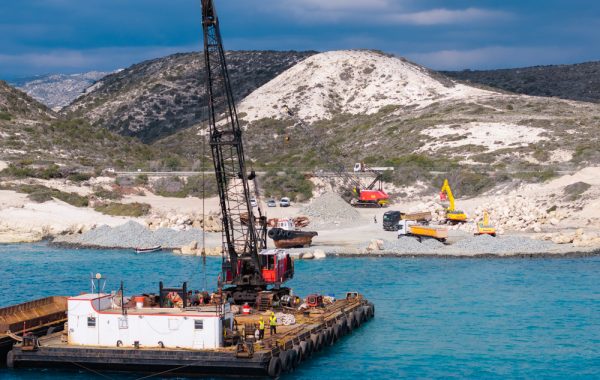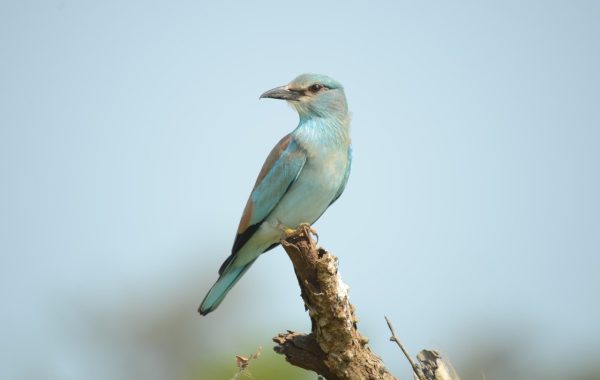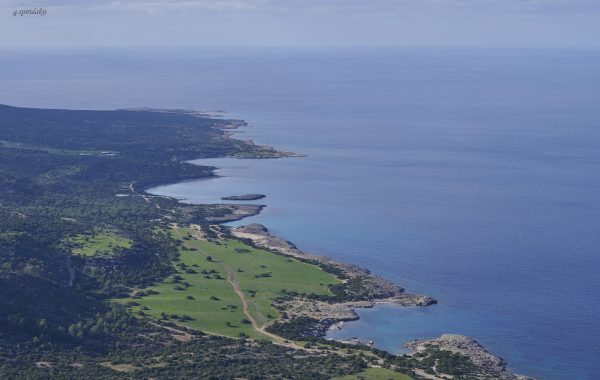From the way we treat our most valuable natural areas to how we deal with the persistent problem of illegal killing of migratory birds, to the rates at which we turn land to concrete to our reluctance to wake up to Invasive Alien Species, the European Commission’s 2022 Environmental Implementation Review sadly echoes BirdLife Cyprus’ repeated alarms: that Cyprus is colossally failing to protect nature.
Every few years the European Commission publishes a Review on the progress made by Member States in implementing EU environmental laws and policies. This past September an updated Review was published for each Member State. For Cyprus, it identifies, as sadly expected, that nature protection remains a major challenge.
Protection of Natura 2000 sites
The Review makes special mention of the Natura 2000 network and paints the following picture for Cyprus: The Natura 2000 network in Cyprus is insufficient and not properly managed or protected.
Even though almost 30% of the terrestrial area under the effective control of the Republic of Cyprus is covered by Natura 2000, the Commission still notes insufficiencies. With regards to birds, having not yet designated marine Special Protection Areas (i.e. offshore Natura 2000 sites for birds) is a significant shortcoming. Beyond designation, the Review addresses the quality of conservation objectives and measures set by Cyprus for its Natura 2000 sites, which are described as not measurable, not reportable and not comprehensive or sufficiently detailed. Finally, the Review speaks of Cyprus’ systematic breaches of the Habitats Directive, specifically in the way plans or projects that may affect Natura 2000 sites are assessed.
On all these key matters mentioned above, the Commission has already opened infringement cases against Cyprus. Failure in addressing these issues could bring Cyprus closer to the European Court of Justice, and more importantly, to further failure to protect nature.
The above begs the question: even if 30% of our island is under Natura 2000 designation, what does this mean in practice if, as obviously shown by this Review, it is not properly managed or protected? Why is Cyprus still making the same mistakes in the way it assesses plans or projects that may affect Natura 2000 sites?

Illegal killing of birds
Going from site protection to species protection, the Review also focuses on the illegal killing of migratory birds, referring to the trapping levels on the island as unacceptably high. It identifies as a priority the need for law enforcement efforts to eliminate illegal bird trapping and killing to be strengthened, with the cooperation of all parties involved. The need for imposing effective and dissuasive penalties on major offenders is given special mention.
The above echoes BirdLife Cyprus’ asks for the reinstatement of the Cyprus Police Anti-Poaching Unit for more effective enforcement against organized trappers.

Farming and land use
The way we use our land is also examined by the Review. It is no shock to read that Cyprus has one of the of the lowest percentage of areas under organic farming in Europe, with no clear upwards trend. The amount of soil organic matter in arable land in Cyprus is also one of the lowest in the EU and despite the pressures to increase soil quality, only 1% of agricultural land is contractually obliged to improve soil, far below the 12% EU average.
While these are some dreadful statistics, nothing is more shocking than the land-sealing rates that Cyprus shows. Cyprus is one of the two Member States, the other being Malta, that saw the largest amount of land take between 2000 and 2018, with 6,4% of our land becoming sealed or artificialized. With the EU-27 average on net land taken by infrastructure being 83.8m2/km2, Cyprus ranks well above that, with an outrageous 396,3m2/km2.
Invasive Alien Species
Last but not least, and even though Invasive Alien Species (such as the Acacia) are a key cause of biodiversity loss in the EU, inflicting major damage on nature, the economy and human health, there is not one single plan in sight to combat Invasive Alien Species in Cyprus. The European Commission has launched an infringement case against Cyprus for this failure.
Almost 20 years after Cyprus’ accession to the EU, our country is still struggling but failing to catch up with environmental laws and policies. The excuses offered are no longer convincing, with biodiversity and the climate at breaking point. Cyprus has all the tools it needs in its tool-shed to step up its game and change course before it is too late.




